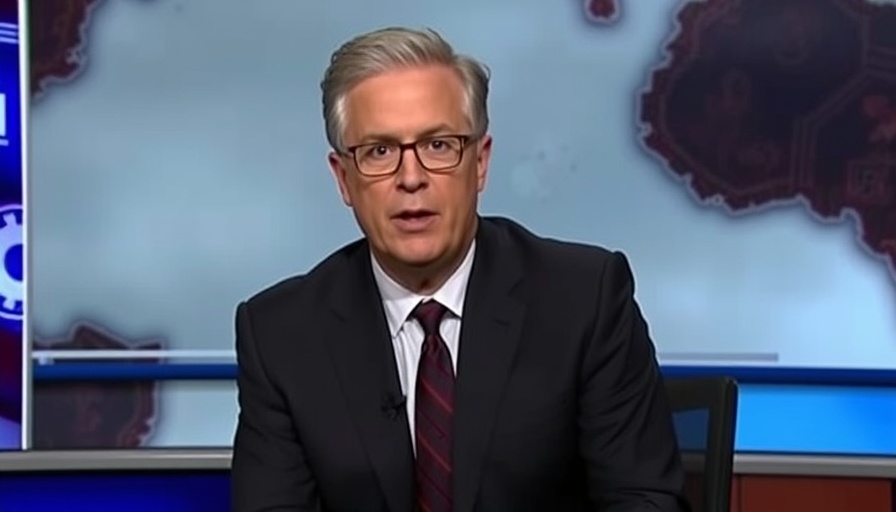
The Impact of Trump’s 'Big Beautiful Bill' on Health and Welfare
Jon Stewart's recent comments on the new legislation, the so-called “One Big Beautiful Bill Act,” highlight critical concerns regarding America’s social safety net. As outlined on The Daily Show, the bill is set to cut nearly $930 billion from Medicaid, putting the health insurance of 11 million Americans at risk. It also aims to eliminate green energy credits and reduce funding for essential services like school lunches for three million children. Stewart's strong commentary underlines a stark contradiction: while these vulnerable populations face significant cuts, the law indicates an increase of $150 billion for Immigration and Customs Enforcement (ICE), leaving many questioning the true intent behind these financial maneuverings.
Stewart's Critique: A Call for Accountability
Jon Stewart's humor delivers a serious point - this bill introduces severe cuts to critical programs yet somehow expands the federal deficit by $3.4 trillion. Stewart quipped, “How did Republicans feel about that when Democrats did it?” This political hypocrisy is an issue that resonates deeply amid current socio-economic challenges, pointing out the selective outrage of politicians based on their party affiliation. Stewart’s analogy of a weight gain despite a diet highlights the absurdity of the current fiscal policies; the government tries to manage deficits by weakening social support rather than addressing the systemic issues of poverty and job security.
Understanding the Real Consequences
Exploring the implications of these budget cuts reveals a larger narrative about where America allocates its resources. The false assumption that poor financial management stems from support for the disadvantaged ignores the reality that many working-class Americans hold full-time jobs yet still require assistance to meet their basic needs. This systemic failure points to an urgent need for reform, one that addresses the structures making it difficult for the average American to thrive.
Reflecting on Performance Reviews: What Does It Mean?
Stewart’s description of the bill as “the most fucked-up performance review our country could ever deliver” raises insightful questions about national priorities. If this legislation is a reflection of the government's assessment of its citizens’ needs, it suggests a troubling indifference towards the welfare of the nation’s most vulnerable. It portrays a stark picture of governmental accountability and asks whether U.S. policy effectively prioritizes citizen welfare or profits.
Future Predictions: What Lies Ahead?
As digital nomads become increasingly aware of global socio-economic policies, it’s crucial to consider how laws like this may influence broader trends in sustainable living and social justice. Current finance and health care policies could set a precedent for how future administrations address similar issues. There is an opportunity for advocacy focused on creating a more equitable system that not only supports marginalized communities but also empowers them to achieve independence and prosperity.
Your Role in Advocacy and Change
Understanding these fiscal changes is essential for concerned citizens and digital nomads alike, who can leverage their platforms for advocacy. By engaging in discussions about social policy, advocating for fair representation, and considering the long-term implications of governmental budgeting, individuals can play a significant role in shaping a brighter future. Join the conversation on social justice and systemic reform; your voice matters.
Conclusion: Stay Informed and Act
In light of Stewart's reflections, it’s evident that there’s a pressing need for public engagement in the political discourse surrounding social welfare and economic policies. Advocating for holistic reforms that prioritize funding for health initiatives and education can positively influence the direction of U.S. policy. Explore local advocacy opportunities, educate yourself, and make your voice heard in discussions that matter. Changing the narrative starts with informed citizens ready to demand accountability from their leaders.
 Add Row
Add Row  Add
Add 




Write A Comment